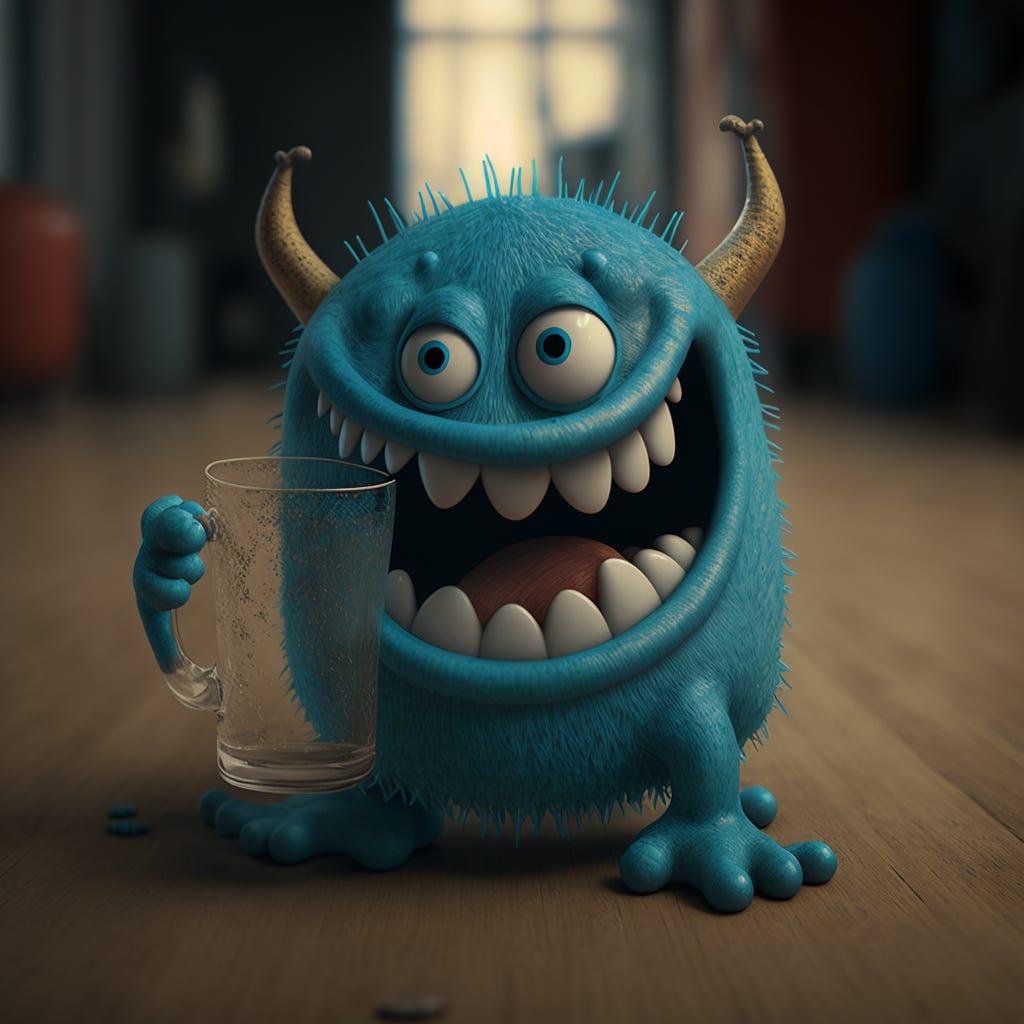Born in 1868, Charles Leiper Grigg grew up in a small town called Prices Branch in Missouri, ostensibly a town where everyone knew how much a tree limb cost. At 22, he ventured off into the burgeoning world of pre-Madman advertising, eventually working alongside a beverage company.
As many a young man does, he probably wasn’t so good at the first line of work and ended up switching jobs twice in the next few years. First, he tried his hand at sales—and considering his drinks didn’t contain any alcohol—it might not’ve been the most lucrative.
On the other hand, he may have been adding alcohol to his sweet drinks as he decided (correctly) that he knew better than the expert scientists crafting all sorts of new-fan dangled sodie pops in the era.
His secret—sugar and orange!
His first drink was called “Whistle” and people loved it. Somehow, they didn’t change the name he gave it. But with his first product’s success came a nice little bump up into management. As it held, lightning struck twice with his second product idea—sugar and orange, but more!
He came out with the new 14% sugar orange-flavored fizzy-drink he named “Howdy”. Again, it’s not known where his marketing department was at this point in time, presumably at a bar somewhere.
Off He Goes
But with success comes greed, and the company he worked for wasn’t having any of it. They simply had no desire to share any rights to his popular beverages.
So, at the ripe entrepreneurial age of 51, Charles ventured off with some financial backers to start his own beverage company. One he could control and creatively create all sorts of ground-breaking revolutionary products. He named the new venture “Howdy Company”.
Sigh.
With his Howdy drink in hand greeting people all over the country, the company was an instant hit. But he had one big mandarin-colored problem—a dominating smash of a drink called Orange Crush. His kind regards of a competitor simply couldn’t compete.
The new solution? Sugar and lemon! That’s the ticket, see.
At the very beginning of the Great Depression in 1929, Charles put on his creative thinking cap, presumably fired his marketing department, added his lemon and sugar, and came out with his next big hit, “Bib-Label Lithiated Lemon-Lime Sodas”.
Genius.
What’s in a Name
Now you may have noticed an odd part of that catchy product name. Lithiated. It implied the product contained a form of lithium. Back then, rich sad people, instead of their modern favorite pastimes of blaming the poor and minorities for their problems, preferred to take a little bit of something called self-responsibility.
When feeling a bit blue, they’d pack up their new Ford Model-Ts and head off to lithium-containing springs such as Lithia Springs in Georgia.
You see, while most people nowadays think of lithium powering over-priced crap electric cars with a tendency to catch on fire, the mineral has been used as a medicine for over 140 years.
Surprisingly, it’s still the 197th most prescribed medicine in the US today, with over 2 million prescriptions in 2020.
What does it help cure? Why, the very thing it was advertised as helping and sorely needed in 1929—depression!
But since it’s usually not too kosher to mix everyday products with medicine, Charles company had to do a bit of backtracking. And by backtracking, I assume that meant he finally hired an advertiser worth their lithium salt.
What was it?
Within 7 years of launching, “Bib-Label Lithiated Lemon-Lime Sodas” changed it’s name twice.
First to “7Up Lithiated Lemon Soda” and later on to plain old “7Up” in 1936.
After the FDA banned the use of lithium citrate in 1948, it was removed from 7 Up, presumably replaced with even more sugar. Today, millions of 7 Ups are sold every year, helping bring obesity to a depressing level.
Whether or not it worked, lithium—with its atomic mass of 7—was certainly sold as an uplifting mood booster.
And knowing a man so terrible at naming products finally came out with one of the most clever is a lesson to be learned for us all.
If at first you don’t succeed, try, try, try again (and-include-happy-drugs-in-your-products)!
Written by a sodie-pop-abstaining J.J. Pryor.
🥤How about you 1 Up this post and help my weirdness annoy more people?🥤






Sodas have fascinating histories behind them. Coke originally had cocaine in it, Dr. Pepper was named for the father of the inventor's fiancee, and 7-UP had lithium in it!
Once you did the reveal, I immediately recalled an old commercial featuring Black American comedian Orlando Jones where he walks around saying "Make 7-UP yours!" (not knowing, apparently, about "up yours" being an insult...).